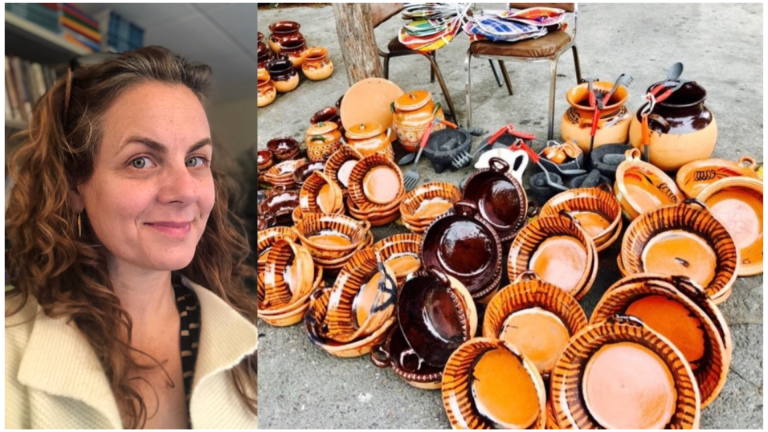Elizabeth Roberts: ‘Grappling with lead in Mexico City’
17 November 2022, 5:00 pm–6:30 pm

Elizabeth Roberts delivers the second seminar in the Embodied Inequalities of the Anthropocene series, hosted by CIESAS Mexico
This event is free.
Event Information
Open to
- All
Availability
- Yes
Cost
- Free
Organiser
-
Embodied Inequalities of the Anthropocene
Elizabeth F.S. Roberts is a professor of anthropology at the University of Michigan, who investigates scientific and public health knowledge production and its embodied effects in Latin America and the United States. She currently collaborates with engineers and environmental health scientists in the United States and Mexico as part of two ongoing team-based projects in Mexico City that she directs: “Mexican Exposures: A Bioethnographic Approach to Health and Inequality” and “Neighborhood Environments as Socio-Techno-bio Systems: Water Quality, Public Trust, and Health in Mexico City” (NESTSMX). In these projects, she and her team trace the looping social, economic, biological, and technical processes that shape everyday life, health, and inequality in working class neighborhoods. One of the key aims of Professor Roberts’ current work is the development of bioethnography, a method that combines social and life sciences approaches in order to make better knowledge about health and inequality. Dr. Roberts is also the director of the Mexico’s Ethnographic Coding Lab where she trains undergraduates in qualitative coding methods using materials from her two multi-disciplinary collaborative projects in Mexico City.
Elizabeth Roberts: ‘Lidiando con el plomo en Ciudad de México’
Elizabeth F.S. Roberts es profesora de antropología en la Universidad de Michigan e investiga la producción de conocimientos científicos y de salud pública y sus efectos incorporados en América Latina y Estados Unidos. Actualmente colabora con ingenieros y científicos de la salud ambiental en Estados Unidos y México como parte de dos proyectos grupales que dirige en Ciudad de México: "Exposiciones mexicanas: Un enfoque bioetnográfico de la salud y la desigualdad" y "Entornos vecinales como sistemas socio-tecnológicos-biológicos: Calidad del agua, confianza pública y salud en la Ciudad de México" (NESTSMX). En estos proyectos, la Dra. Roberts junto con su equipo rastrea los procesos sociales, económicos, biológicos y técnicos que conforman la vida cotidiana, la salud y la desigualdad en los barrios de clase trabajadora. Uno de los objetivos clave del trabajo de la profesora Roberts es el desarrollo de la bioetnografía, un método que combina los enfoques de las ciencias sociales y de la vida con el fin de mejorar el conocimiento sobre la salud y la desigualdad. La Dra. Roberts es también directora del Laboratorio de Codificación Etnográfica de México, donde forma a estudiantes de pregrado en métodos de codificación cualitativa utilizando materiales de sus dos proyectos colaborativos multidisciplinarios en Ciudad de México.
The Embodied Inequalities of the Anthropocene (collaboration between UFRGS Brazil, CIESAS Mexico and UCL in the UK) brings together environmental, indigenous, biosocial, multispecies, gender and theoretical expertise in Medical Anthropology, to extend interdisciplinary engagement concerning how the Anthropocene epoch impacts on human health. Our group aligns interest and expertise in diverse fields of inquiry relevant to the embodied inequalities of the Anthropocene including gender, justice and power, indigenous health, well-being and sustainability.
For more information, please contact Maria Paula Prates maria.prates@ucl.ac.uk
A Zoom link for the event will be circulated closer to the seminar date. Sign up is required.
 Close
Close

